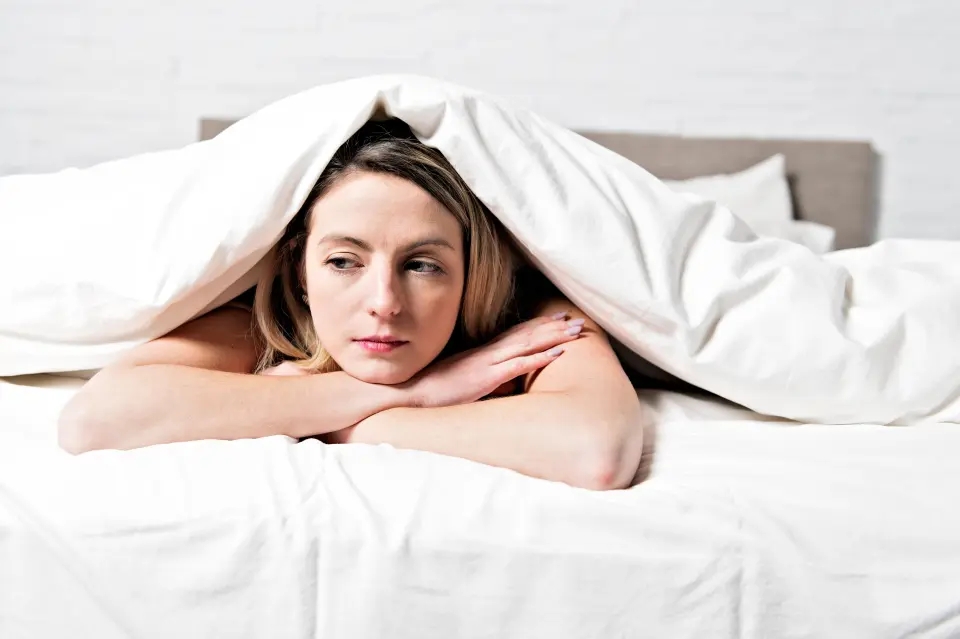ONE of the first symptoms of the Omicron Covid variant may creep up on you in the night.
The rapid spread of the new mutation has left Brits on tenterhooks the past month, with many watching out for any sign they are unwell.

The UK’s daily Omicron cases have been reaching record-highs, leaving the Prime Minister mulling over possible restrictions if the NHS becomes under threat.
But in positive news, a string of bombshell studies show Omicron IS milder than other strains – with the first official UK report revealing the risk of hospitalisation is 50 to 70 per cent lower than with Delta.
And Covid booster jabs, given to half of people in the UK, protect against Omicron.
Getting your jab supports the best chance of getting Britain through the pandemic, health officials have repeatedly said.
Trending In The News’s Jabs Army campaign is helping get the vital extra vaccines in Brits’ arms to ward off the need for any new restrictions.
As the vaccine rollout battles against Omicron, scientists are putting more pieces of the Omicron puzzle together.
Doctors in South Africa – where Omicron originally emerged – have explained those suffering from the new strain have reported experiencing a specific symptom when the lights go out.
Night sweats have commonly been reported by those infected with Omicron.
It can leave your bedsheets and nightwear damp, or even soaking wet, even if the room you are sleeping in is cool.
Speaking to ITV’s Lorraine, Dr Amir Khan said patients were experiencing “those kind of drenching night sweats where you might have to get up and change your clothes”.
He said it was important people knew symptoms like night sweats could be the Omicron variant, as it would drive them to get tested.
Follow our Omicron Covid live blog for all the latest news & stories
“If they go onto the NHS website and say I’ve got night sweats and I’ve got muscle aches, they may not be able to book a PCR test,” Dr Khan said.
“So we need the NHS website to keep up with these symptoms.”
The NHS lists the three classic Covid symptoms as a dry, continuous cough, a high temperature and a loss of your sense of taste or smell.
But experts are now urging the NHS to change its official list of symptoms as reports continue to emerge of indicators that are different to those seen in other variants that have been circulating.
Dr Khan said: “The symptoms that are coming out of South Africa by the doctors that are looking after patients with Omicron show these five new symptoms.
“A scratchy throat, mild muscle aches, extreme tiredness, a dry cough and night sweats.”
Another nocturnal sign of Omicron, and Covid generally, could be sleep paralysis, reported by many sufferers on social media.
Sleep paralysis is when someone is in a dreamy but conscious state, and feels the prescence of something sinister in the room, but are unable to move or speak.
Sleep therapy expert Dr Kat Lederle said that while there is no direct evidence linking sleep paralysis and Covid, it could be a strange neurological symptom.
“It could be the virus infection itself impacts on the sleep regulation in the brain (neurological effects of Covid have been reported),” she told MailOnline.
“But I think it is more likely that should there be an increase in sleep paralysis that this is due to the stress resulting from the big changes to how we go and live our lives at the moment, the uncertainty and anxiety that we are facing which are impacting on our sleep system.”
Data coming out of South Africa also shows that lower back pain could be another symptom of Omicron.
And a virologist has said headaches and fatigue can strike “rapidly”.
KNOW THE SIGNS
It’s important that if you think you have Covid then you get a test and isolate in order to stop the spread of the virus.
These new symptoms could mean that many people are missing infections, and mistaking them for something else.
A scratchy throat could be mistaken for a cold – and experts have repeatedly said any illness that resembles a cold should be treated as potential Covid.
Many people could mistake back pain for common aches and niggles.
But it’s undoubtedly worth celebrating that Omicron causes milder illness than Delta, according to a set of studies.
The UK Health and Security Agency (UKHSA) said their research shows that someone with Omicron is between 31-45 per cent less likely to attend A&E than an individual with Delta.
They are also 50-70 per cent less likely to be admitted to hospital.
If the severity of the disease is actually “significantly lower than Delta”, then some of the impact on the NHS may be less severe, UKHSA’s Dr Jenny Harries said.
More research from Imperial College London indicated that people with confirmed Omicron are 15 to 20 per cent less likely to need admission to hospital, and 40 to 45 per cent less likely to require a stay of one night or more.
Scientists in Scotland said Omicron has a two-thirds reduction in the risk of hospital admission compared with Delta.
While the estimates vary, they all point to one conclusion – Omicron is likely to be milder than Delta.
But in more sinister developments, experts say that even if the disease is less severe for the individual, there is likely to still be huge pressures on the NHS.
The best way to get optimal protection against the virus is to have your booster vaccine.






